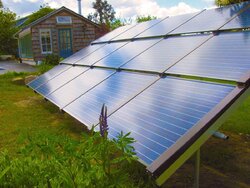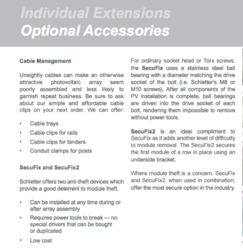In mid-November the install will take place. We're going ground mount. The panels will be over 200 feet from the road. I had been planning to install a fence asap so you cannot see the panels from the road. My reason was partly that I thought they'd be ugly and partly that I don't want my neighbors to know I just spent all this money. Out where I live I worry about being the target of thieves (it's happened before). Blocking the solar bling would keep that situation neutral.
But the installer came out today for the site evaluation. He staked out where they would be. After seeing the staggered layout and the direction they will point I think they're going to look fantastic from the road. It now seems like the beauty factor of the property will be enhanced significantly from the road by having them down in the orchard. Putting up a fence will essentially truncate my orchard in what seems in my mind's eye to be kind of awkward.
What do you guys think? What other factors might be worth considering?
But the installer came out today for the site evaluation. He staked out where they would be. After seeing the staggered layout and the direction they will point I think they're going to look fantastic from the road. It now seems like the beauty factor of the property will be enhanced significantly from the road by having them down in the orchard. Putting up a fence will essentially truncate my orchard in what seems in my mind's eye to be kind of awkward.
What do you guys think? What other factors might be worth considering?



